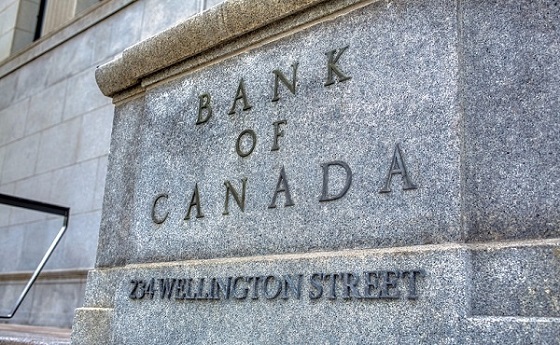CBDC Central Bank Digital Currency
Klaus Schwab pushes ‘fourth industrial revolution’ at WEF’s ‘Summer Davos’ opening

Chinese Premier Li Qiang (R) shakes hands with founder and executive chairman of the World Economic Forum, Klaus Schwab
From LifeSiteNews
At the WEF’s 2024 ‘Meeting of the New Champions’ in Dalian, China, Klaus Schwab praised China’s economic policies and urged ‘all stakeholders’ to ‘use technologies of the fourth industrial revolution in a wise manner.’
World Economic Forum (WEF) founder Klaus Schwab kicks off the Annual Meeting of the New Champions, aka “Summer Davos,” in Dalian, China, saying that economic growth and a more peaceful future will come from embracing innovation and forcing collaboration.
Speaking at the opening plenary alongside the president of Poland, Andrzej Duda, the prime minister of Vietnam, Pham Minh Chinh, and People’s Republic of China Premier Li Qiang, Schwab regurgitated parts of his speech from last year’s meeting, praising China for its economic policies while congratulating everyone participating in the event for representing “the most outstanding talents from business, government, academia, and civil society.”
In his very brief opening statement, the unelected globalist founder of the WEF said that the participants must “force collaboration” in order to drive economic growth and create a more resilient future.
“To drive future economic growth we must embrace innovation and force the collaboration across sectors, regions, nations, and cultures to create a more peaceful, inclusive, sustainable, and resilient future,” said Schwab.
“At this critical juncture the active participation of all stakeholders is essential to ensure a sustainable development path,” he added.
“To drive future economic growth we must embrace innovation and force the collaboration across sectors, regions, nations, and cultures to create a more peaceful, inclusive, sustainable, and resilient future” Klaus Schwab at the WEF #AMNC24 Summer Davos pic.twitter.com/puctx7Bg5m
— Tim Hinchliffe (@TimHinchliffe) June 25, 2024
Schwab also mentioned that technologies coming out of the so-called fourth industrial revolution would make the world a better place.
“We are witnessing rapid technological advances with many opportunities, and with artificial intelligence, rapidly transforming our production and our lives,” he said, adding, “Breakthroughs from the fourth industrial revolution provide new opportunities for global prosperity and growth.”
"Risks & opportunities co-exist.. Breakthroughs from the fourth industrial revolution provide new opportunities for global prosperity and growth" Klaus Schwab at the WEF #AMNC24 Summer Davos pic.twitter.com/jTcTMLaV9L
— Tim Hinchliffe (@TimHinchliffe) June 25, 2024
The WEF Annual Meeting of the New Champions runs from June 25-27 under the theme “Next Frontiers for Growth.”
At the end of the plenary and after the president, the premier, and the prime minister had all praised their countries’ achievements and ambitions, Schwab returned to the topic of the fourth industrial revolution while revisiting this year’s theme, saying that were “limits to growth.”
"The theme of this annual meeting is 'Next Frontiers For Growth,' but actually what we have seen in the presentations there are now Limits to Growth, provided we use technologies of the fourth industrial revolution in a wise manner" Klaus Schwab at the WEF #AMNC24 Summer Davos pic.twitter.com/SJDT5rLgIO
— Tim Hinchliffe (@TimHinchliffe) June 25, 2024
“Limits to growth” is a nod to the Club of Rome book of the same name published in 1972, and Schwab says that these limits can be overcome by using technologies of the fourth industrial revolution wisely, by taking care of nature, by seeing the green economy as a “great opportunity for humankind,” by exploiting the capabilities of the attendees, and by formulating collaborations between governments and businesses.
The WEF strives to be the “leading global institution for public-private collaboration,” which is the fusion of corporation and state, or corporatism.
Opening Plenary #AMNC24 with Li Qiang, @AndrzejDuda, Pham Minh Chinh (@VNGovtPortal), Klaus Schwab https://t.co/JCTBlo4V8C
— World Economic Forum (@wef) June 25, 2024
At the opening of last year’s Annual Meeting of the New Champions, Schwab praised Premier Li for “opening-up China’s capital market, attracting foreign investment, and innovation, and creating new urban areas to address land scarcity.”
He also thanked China for its “over 40 years of friendly and extensive partnership” with the WEF.
"Premier Li took his office this March at China's National People's Congress at a critical moment when China adopted new COVID control measures and started to boost economic development, social dynamism, and international cooperation": Klaus Schwab #AMNC23 #WEF pic.twitter.com/cWHGl5QNJs
— Tim Hinchliffe (@TimHinchliffe) June 27, 2023
During another session last year, Cornell University professor Eswar Prasad said that “we are at the cusp of physical currency essentially disappearing,” and that programmable Central Bank Digital Currencies (CBDCs) could take us to either a better or much darker place where governments could program CBDCs with expiry dates and to restrict undesirable purchases.
"You could have a potentially […] darker world where the government decides that [CBDC] can be used to purchase some things, but not other things that it deems less desirable like say ammunition, or drugs, or pornography, or something of the sort": Eswar Prasad, WEF #AMNC23 pic.twitter.com/KkWgaEWAR5
— Tim Hinchliffe (@TimHinchliffe) June 28, 2023
Last month the WEF announced that Schwab will be transitioning from his role as the executive chairman of the forum to become chairman of the board of trustees, which consists of some of the most powerful people on the planet.
Starting next year, the forum’s executive responsibilities will be run by a president and managing board.
The current WEF president is former Norwegian MP Børge Brende. He is also the chair of the managing board.
If Brende keeps his position as president, then he may be the new face and voice of the organization, which has been pivoting “from a convening platform to the leading global institution for public-private collaboration” for almost a decade.
However, executive decisions will not be placed on a single individual but will include a managing board as well.
Reprinted with permission from The Sociable.
Banks
Top Canadian bank studies possible use of digital dollar for ‘basic’ online payments

From LifeSiteNews
A new report released by the Bank of Canada proposed a ‘promising architecture well-suited for basic payments’ through the use of a digital dollar, though most Canadians are wary of such an idea.
Canada’s central bank has been studying ways to introduce a central bank digital currency (CBDC) for use for online retailers, according to a new report, despite the fact that recent research suggests Canadians are wary of any type of digital dollar.
In a new 47-page report titled, “A Retail CBDC Design For Basic Payments Feasibility Study,” which was released on June 13, 2025, the Bank of Canada (BOC) identified a “promising architecture well-suited for basic payments” through the use of a digital dollar.
The report reads that CBDCs “can be fast and cheap for basic payments, with high privacy, although some areas such as integration with retail payments systems, performance of auditing and resilience of the core system state require further investigation.”
While the report authors stopped short of fully recommending a CBDC, they noted it is a decision that could happen “outside the scope of this analysis.”
“Our framing highlights other promising architectures for an online retail CBDC, whose analysis we leave as an area for further exploration,” reads the report.
When it comes to a digital Canadian dollar, the Bank of Canada last year found that Canadians are very wary of a government-backed digital currency, concluding that a “significant number” of citizens would resist the implementation of such a system.
Indeed, a 2023 study found that most Canadians, about 85 percent, do not want a digital dollar, as previously reported by LifeSiteNews.
The study found that a “significant number” of Canadians are suspicious of government overreach and would resist any measures by the government or central bank to create digital forms of official money.
The BOC has said that it would continue to look at other countries’ use and development of CBDCs and will work with other “central banks” to improve so-called cross border payments.
Last year, as reported by LifeSiteNews, the BOC has already said that plans to create a digital “dollar,” also known as a central bank digital currency (CBDC), have been shelved.
Digital currencies have been touted as the future by some government officials, but, as LifeSiteNews has reported before, many experts warn that such technology would restrict freedom and could be used as a “control tool” against citizens, similar to China’s pervasive social credit system.
The BOC last August admitted that the creation of a CBDC is not even necessary, as many people rely on cash to pay for things. The bank concluded that the introduction of a digital currency would only be feasible if consumers demanded its release.
Conservative Party leader Pierre Poilievre has promised, should he ever form the government, he would oppose the creation of a digital dollar.
Contrast this to Canada’s current Liberal Prime Minister Mark Carney. He has a history of supporting central bank digital currencies and in 2022 supported “choking off the money” donated to the Freedom Convoy protests against COVID mandates.
Banks
Legal group releases report warning Canadians about central bank digital currencies

From LifeSiteNews
By
“central bank digital currency could hand incredible power to the Government and Bank of Canada to monitor financial transactions, punish whatever behaviours the government deems undesirable, and penalize those on the wrong side of government ambitions”
The Justice Centre for Constitutional Freedoms released a new report examining how the adoption of a central bank digital currency in Canada could undermine the rights and freedoms of Canadians, including their privacy, autonomy, security, equality, and access to economic participation.
Financial transactions are increasingly conducted digitally. In 2023, a mere 11 percent of transactions were conducted with cash, according to Payments Canada.
This trend is not limited to individual consumers. Government entities, including government departments, agencies, and Crown Corporations, have rapidly digitized access to, and delivery of, their goods and services over the past decade.
READ: Mark Carney has history of supporting CBDCs, endorsed Freedom Convoy crackdown
Against this backdrop, in 2017, the Bank of Canada (a Crown Corporation) began exploring the possibility of implementing its own government-issued and government-controlled cashless currency – a central bank digital currency (CBDC).
In a 2023 Bank of Canada survey on CBDCs, however, 82 percent of 89,423 respondents strongly disagreed that the Bank of Canada should be researching or building the capability to issue a CBDC. Despite these results, the Bank of Canada continues to research a CBDC for Canada.
The Justice Centre’s report critically evaluates the impact a CBDC could have on Canadians’ fundamental rights and freedoms. Absent robust legislative protections and oversight, a CBDC could allow the Government and Bank of Canada to monitor Canadians’ purchases, donations, investments and other financial transactions.
A CBDC has the potential to empower government to reward and punish the behaviours and lifestyle choices of individual Canadians, as Communist China does with its “social credit” system. Allowing the government to peer into and influence Canadians’ purchasing behaviours could have a profoundly damaging impact on their privacy and autonomy, cautions the report.
READ: Financial expert warns all-digital monetary system would enable ‘complete control’ of citizens
Canada is not the first jurisdiction to explore a CBDC. This report evaluates the Bank of Canada’s exploration within a global context, applying lessons learned from jurisdictions like Nigeria, the Caribbean, and others.
After analyzing negative outcomes of “going cashless” in jurisdictions such as Australia, Sweden, Finland, and Norway, this report advocates for the value of cash and the need for robust institutional and legislative protections for the use of cash.
Ben Klassen, Education Programs Coordinator at the Justice Centre and lead author of the report, stated, “Many Canadian politicians and policy designers would have us participate in a frantic (and global) race to digitize goods and services, including our dollar. The finish line, we are told, promises heightened profitability, convenience, and security. While the pursuit of innovation and efficiency can deliver worthwhile rewards, we must always remember the values of privacy, autonomy, security, equality, and access to economic participation. Adopting a central bank digital currency risks excluding the homeless, the elderly, the ‘internetless,’ the technologically illiterate, and the conscientious objector.”
“Most seriously, a central bank digital currency could hand incredible power to the Government and Bank of Canada to monitor financial transactions, punish whatever behaviours the government deems undesirable, and penalize those on the wrong side of government ambitions,” continued Mr. Klassen. “This issue should be framed as a contrast between a ‘digital dollar’ and a ‘human dollar’ – our currency cannot be designed without regard for the humans and human values that will be profoundly impacted by its design.”
READ: RFK Jr. warns Americans ‘will be slaves’ if central bank digital currency is established
This report was produced in collaboration with Sharon Polsky – President of AMINAcorp.ca, President of the Privacy & Access Council of Canada, and a Privacy by Design Ambassador with more than 30 years’ experience in advising governments and policy designers on privacy and access matters.
Reprinted with permission from the Justice Centre for Constitutional Freedoms.
-

 Alberta1 day ago
Alberta1 day agoAlberta judge sides with LGBT activists, allows ‘gender transitions’ for kids to continue
-

 Alberta1 day ago
Alberta1 day agoAlberta Independence Seekers Take First Step: Citizen Initiative Application Approved, Notice of Initiative Petition Issued
-

 Crime14 hours ago
Crime14 hours agoNational Health Care Fraud Takedown Results in 324 Defendants Charged in Connection with Over $14.6 Billion in Alleged Fraud
-

 Health14 hours ago
Health14 hours agoRFK Jr. Unloads Disturbing Vaccine Secrets on Tucker—And Surprises Everyone on Trump
-

 Business3 hours ago
Business3 hours agoElon Musk slams Trump’s ‘Big Beautiful Bill,’ calls for new political party
-

 Business1 day ago
Business1 day agoCanada Caves: Carney ditches digital services tax after criticism from Trump
-

 Crime1 day ago
Crime1 day agoSuspected ambush leaves two firefighters dead in Idaho
-

 Bruce Dowbiggin1 day ago
Bruce Dowbiggin1 day agoThe Game That Let Canadians Forgive The Liberals — Again






